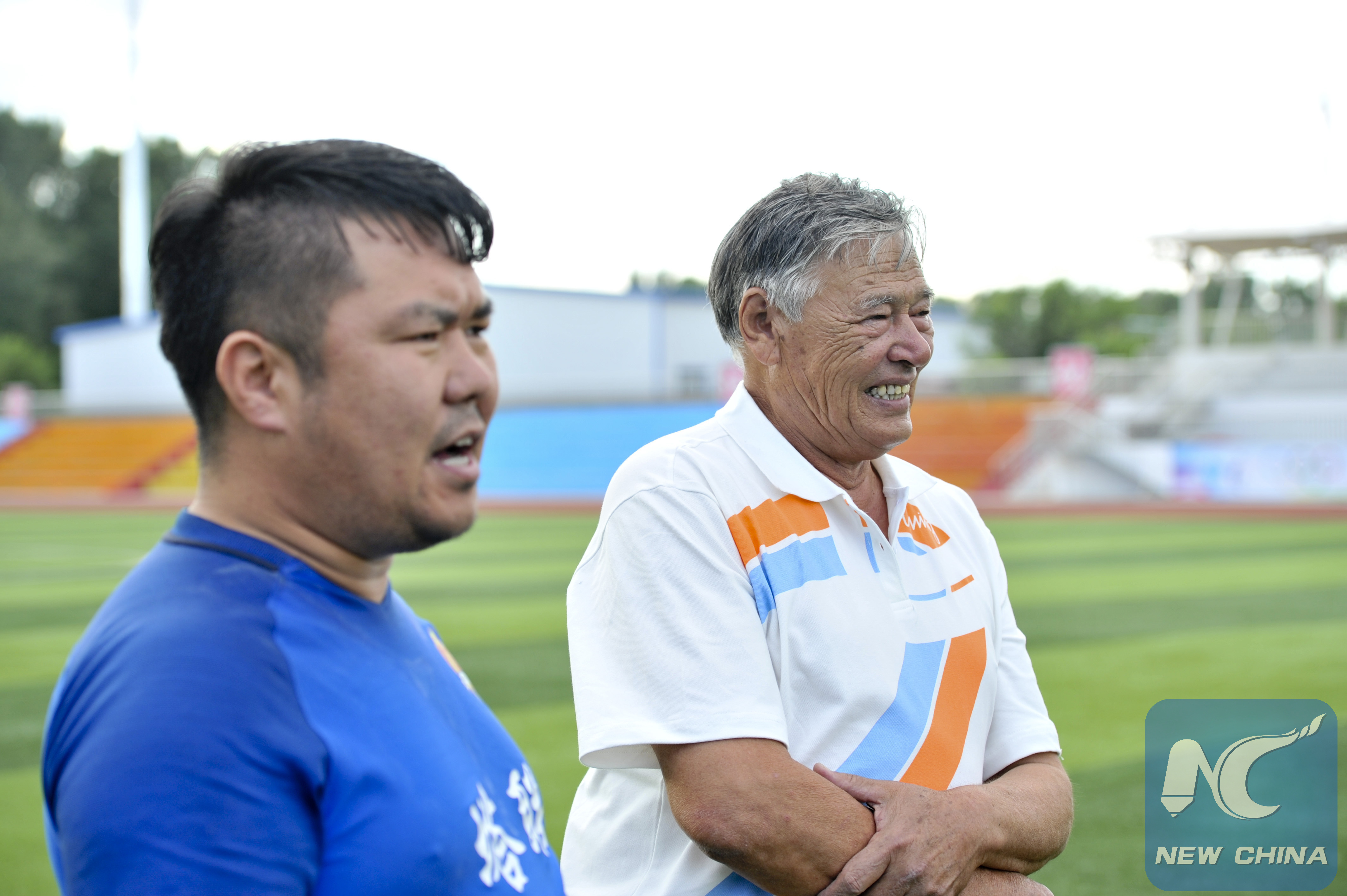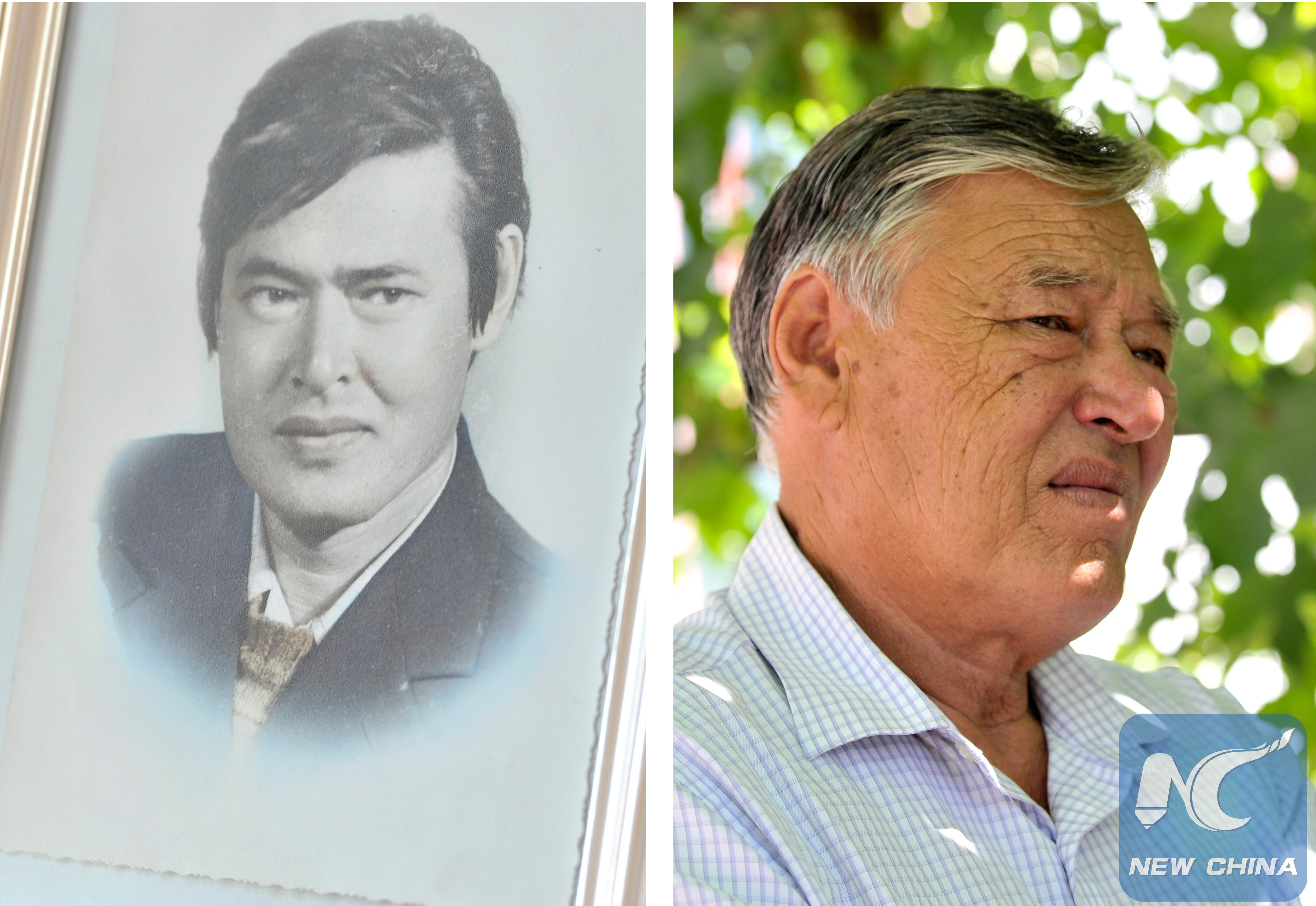
Ehat Yasin (Middle) talks to players on the field.
URUMQI, July 26 (Xinhua) -- Ehat Yasin, 66, who played on the football field for just six years, has been coaching hundreds of young players in Tacheng, northwest China's Xinjiang Uygur Autonomous Region, since his retirement from the playing career more than four decades ago.
He is not as successful as someone like Alex Ferguson, but he is regarded as the greatest manager in the remote Chinese town. Even when walking on the street, he is always recognized and called "coach," almost like a local football icon.
Ehat is a native of Tacheng City, Xinjiang Uygur Autonomous Region, one of China's most underdeveloped areas.
China has embarked on a youth football development program to set up more schools specializing in football, aiming to build up the sport at the grassroots.
Home to people of 47 ethnic groups, Xinjiang boasts great passion for football, but lacks fields and a professional training system due to economic underdevelopment, meaning that fostering growth for the sport in the region is more difficult than in other inland parts of China.
The football-fanatic Ehat wanted to help in this effort. After his retirement from his playing career in 1976, the then 25-year-old man continued devoting himself to football by setting up and managing a school and a team for local amateurs.
He gave up a well-paid job in Urumqi, regional capital of Xinjiang, and instead went back home to underdeveloped Tacheng to ignite football fever among local youths.

Ehat (Right) shares his experience with players.
However, coaching is much harder than playing, as Ehat soon found out. Although experienced on the field, he knew little about theory.
"I had no idea what data I should look at when I selected players for the team," Ehat recalls.
To make up for what he lacked, he went for further study in sports colleges.
Throughout more than four decades, Ehat has coached youth teams of different ages, but what remains unchanged is his motto: "to be strict."
"They are just playful kids, therefore I must be strict with them during training and games," he says.
When taking his teams to competitions across the country, Ehat has no time for sightseeing. He looks after his players at the dorm, and does not sleep until he is sure everyone goes to bed.
Under his strict coaching guidance, hundreds of youths have reached different football leagues in different parts of Xinjiang. Ehat, however, stays behind, also providing consulting services in many local teams.
"We will invite Ehat to be an advisor in our club. His experience is priceless to us," remarked Baoyin, captain of the Tarbagatay Multi-Ethnic Unity Youth Team.

Ehat (right) and Baoyin watch players training on the field.

During coaching, Ehat sometimes can't resist the temptation to play for a while on the field.
PAST GLORY
Watching players on the field, Ehat sees himself four decades ago, when he was in his prime.

Ehat broods as young players are playing football.
His football career kicked off in 1970, when the Xinjiang sport authorities selected players to build a regional team. To seize the opportunity, Ehat rode a bicycle for 27 kilometers to take part in the tryout, and he made it.
Ehat played as a goalkeeper for the Xinjiang regional team and took part in national competitions for six years.
"Thanks to football, I have traveled around China," he says.
"Back then, transportation was poor. It took us a whole week to travel from Xinjiang to south China's Guangdong Province," Ehat recalls, but the trek never obstructed his love for football.
But injuries did. Ehat had to quit playing in 1976 due to injuries to his waist and knees.

The combo picture shows Ehat's past and present.
Ehat can't play on the field, but he played on the screen. In 1980, he acted as a goalkeeper of fictional European football team Gold Lion in China's first football movie "Come On, Soccer."
Today Ehat still misses his 'good old days' as a player. "At that time we were all covered in dirt after training," he recalls.
The dirt field they used to play on has long since been transformed, but "what must be passed on is the spirit of hard work," Ehat stresses.
The manager has no plans for retirement yet, but does plan to build a youth team in Tacheng.
He plans to manage the team for at least one year to lay a solid foundation for the young players before handing responsibilities over to someone else.
(All photos by Hu Huhu)

